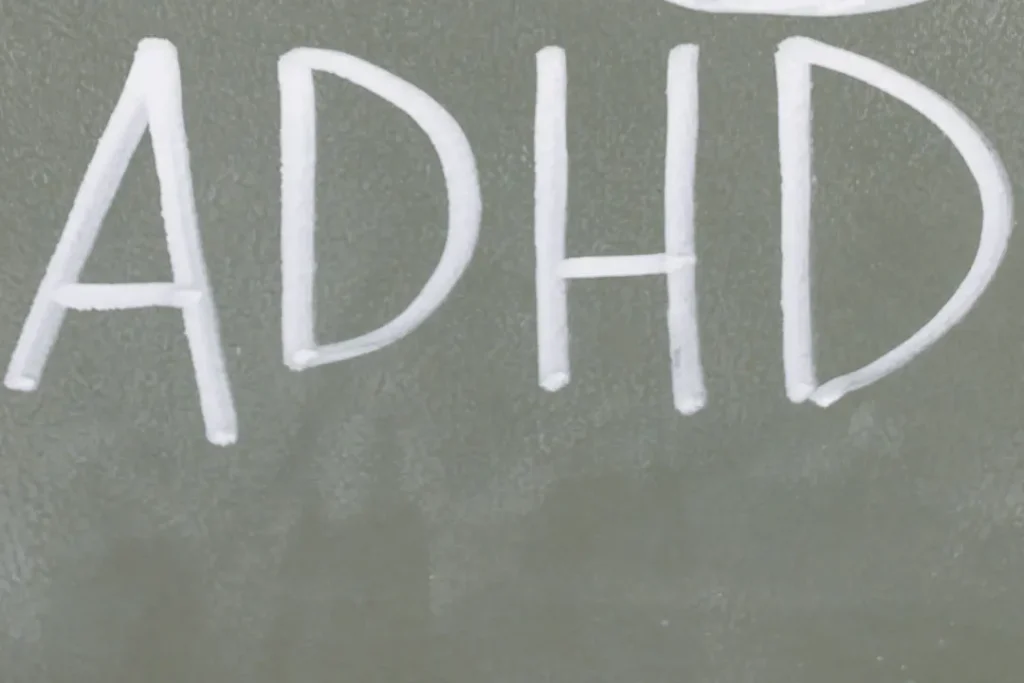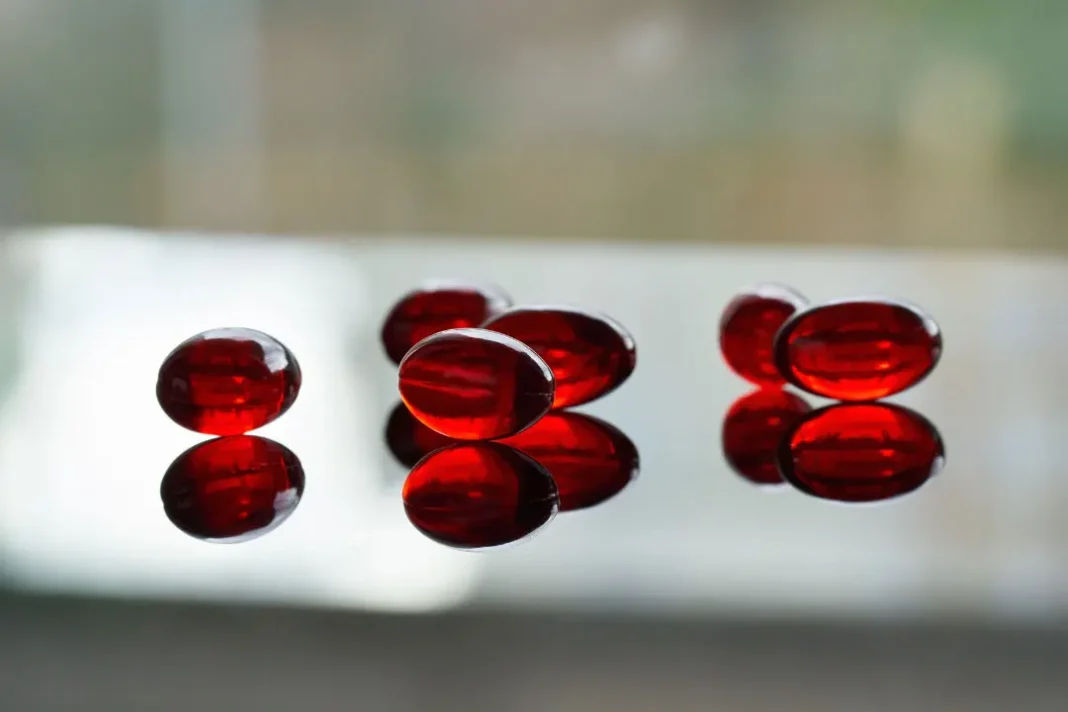Krill oil is a promising addition to ADHD nutrition due to its high omega-3 content, specifically EPA and DHA, the essential fatty acids that support brain health, neurotransmitter function, and dopamine regulation. These functions are crucial for attention and focus. Krill oil’s unique phospholipid structure allows for efficient absorption, maximizing its benefits. Studies indicate krill oil can enhance attention span, reduce impulsivity, and improve executive function in individuals with ADHD. By incorporating this powerful supplement into their daily diet, they’ll reduce symptoms and enjoy a transformative improvement in their daily lives.
If your train of thought is easily derailed, it could be more than a simple concentration problem. The CDC estimates that more than 6 million children in the U.S. suffer from attention-deficit hyperactivity disorder or ADHD. More than 8 million adults also share the disorder, but fewer than half are aware they have it.
You May Also Like:
HUBERMAN SLEEP SUPPLEMENTS VS DELTA BRAINLUXURY
FINDING THE BEST MUSHROOM SUPPLEMENTS FOR IMMUNE SYSTEM HEALTH: 5 TOP BRANDS REVIEWED
Unlocking Focus: The Power of Krill Oil for ADHD Nutrition is an original (MedNewsPedia) article.
What is ADHD?
From the time most of us can walk or talk, we’re told to sit down, shut up, and “pay attention.” That’s easier said than done for some with the debilitating neuro-developmental disorder known as ADHD. The symptoms present before age 12 and usually continue into adulthood. While most children have trouble paying attention, sitting still, or waiting their turn, the symptoms are more severe in a child with ADHD. They include:
- Constant fidgeting: Unable to sit still, even while in a quiet setting, like a movie.
- Inability to concentrate on a task: Often leaves the task unfinished and jumps to another project.
- Lacks attention to detail: Makes careless mistakes in an attempt to get projects over with.
- Excessive physical movements: Foot tapping, finger drumming, and rocking are common ways to stimulate the brain when a task isn’t providing enough stimulation.
- Impulsive behavior: This lack of impulse control often leads children to act out and adults to say something they later regret.
- Interrupting conversations: Conversation is the art of taking turns, and someone with ADHD and neurodiversity may lack the filter needed to follow a conversation and wait their turn to speak.
- Forgetfulness: It’s tougher for the mind to store a lot of information, so ADHD sufferers may find themselves losing keys, homework assignments, and other important items.
- Lacking a sense of danger: Children with ADHD often suffer more injuries from jumping off high places or wandering into dangerous situations. Part of this is impulsiveness, and some is a lack of awareness of surroundings.
- Easily distracted: External stimuli may make it impossible to pay attention when someone is speaking. Doctors found the brain of someone with ADHD has less dopamine, the chemical necessary to focus.
While one or two of these traits isn’t unusual, someone who suffers from most or all of them is also at risk for developing depression, low self-esteem, anxiety, and a number of other psychiatric disorders. Researchers estimate ADHD costs the U.S. more than $122 billion in lost productivity in the workplace. That doesn’t take into account the cost of treatment.
ADHD and nutrition
While there is no cure, it is possible to treat the symptoms of ADHD with medication, psychological counseling, and proper nutrition. Doctors recommend a diet that includes the following:
- Fruits and vegetables: The CDC recommends 1.5 cups of fruit and 2 to 3 cups of vegetables a day.
- Complex carbohydrates: Legumes, whole grain vegetables, apples, and berries are less likely to spike your blood sugar levels.
- Protein-rich foods: Eggs, lean meats, and low-fat yogurt also keep your blood sugar low.
- Omega-3 fatty acids: Fatty fish, flaxseed, and avocados are rich in omega-3, which support your heart health, memory, and immune function and improve your ability to focus, reducing ADHD symptoms.
- Zinc: Scientists found children with ADHD often have lower levels of zinc. A zinc supplement is shown to improve memory and restlessness.
- Choline: Studies show children who add choline to their diet have improved memory and fewer behavioral outbursts related to ADHD.
There are also foods that exacerbate the symptoms of ADHD, including:
- Sugar: Cutting out snacks with a high sugar content may give you a sweeter child. Sugar causes the pancreas to secrete insulin, which stimulates an increase in epinephrine, leading to hyperactivity in both adults and children.
- Caffeine: Stimulants such as caffeine may increase dopamine levels, leading to nervousness and a state of agitation.
- Fried foods: A high-fat diet with unhealthy saturated fats increases attention and memory difficulties.
- Processed meats: Researchers found a huge correlation between a diet high in processed meats and ready-to-eat snacks and ADHD.

Krill oil for ADHD nutrition
Omega-3 is essential for cognitive function. Studies show babies who get insufficient amounts of omega-3 fatty acids are at risk for developing neurological brain disorders such as ADHD, and children who suffer from ADHD typically have low levels of eicosapentaenoic acid (EPA) and docosahexaenoic acid (DHA) in their bodies. Since the body does not manufacture omega-3 on its own, The Mayo Clinic suggests a daily supplement of at least 250 mg of omega-3 in either krill or fish oil.
By choosing krill oil, you avoid the mercury and other toxins often found in fish, especially if that krill is sourced from the pristine Antarctic Ocean. You also avoid the fishy aftertaste often found in fish oil capsules. Krill oil also contains phospholipids – the structural components that carry the EPA and DHA to your cell membranes and help your body absorb omega-3 acids faster. And let’s face it: time is of the essence when dealing with impulse control and attention span issues.

Best krill oil for combating ADHD
We found several krill oil products on the market, but only a few are sustainably sourced, have the proper amount of omega-3s, and are third-party tested for purity. Kori Krill Oil meets all of these objectives and contains 250 mg of both EPA and DHA and phospholipids to increase its absorption rate. This brand is also one of the few containing choline to help with impulse control in ADHD patients.
Several online reviewers also give Kori Krill Oil high marks for its different-sized softgel options, making it easier to swallow. Another plus? Kori Krill Oil contains no GMOs, artificial coloring, flavorings, or preservatives.

Attention-getting supplements
There’s no shame in being diagnosed with ADHD… only in not treating it in the best way possible. Behavioral therapy often helps both children and adults modify certain habits. Medication can also help, but some of those medications come with harmful side effects, including a loss of appetite and irritability. By incorporating krill oil into your diet, you can manage your ADHD naturally and reap all the heart and brain benefits omega-3 fatty acids have to offer.

Further reading for additional reference:
National Institute of Mental Health: Attention-Deficit/Hyperactivity Disorder (ADHD)
Mayo Clinic: Adult Attention-Deficit /Hyperactivity Disorder (ADHD
Centers for Disease Control: Other Concerns and Conditions with ADHD
Cleveland Clinic: Attention-Deficit/Hyperactivity Disorder (ADHD), Inattentive Type in Adults
Important Note: The information contained in this article is for general informational purposes only, and should not be construed as health or medical advice, nor is it intended to diagnose, prevent, treat, or cure any disease or health condition. Before embarking on any diet, fitness regimen, or program of nutritional supplementation, it is advisable to consult your healthcare professional in order to determine its safety and probable efficacy in terms of your individual state of health.
Regarding Nutritional Supplements Or Other Non-Prescription Health Products: If any nutritional supplements or other non-prescription health products are mentioned in the foregoing article, any claims or statements made about them have not been evaluated by the U.S. Food and Drug Administration, and such nutritional supplements or other health products are not intended to diagnose, treat, cure, or prevent any disease.


